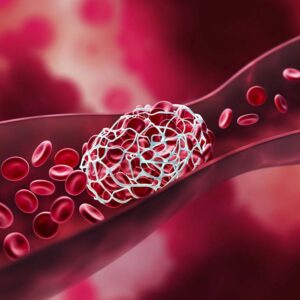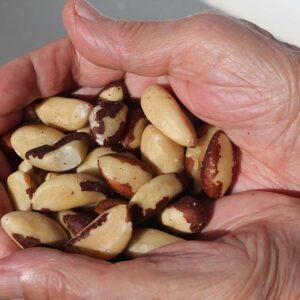
Stop Diabetes Naturally With This Vitamin
- Has the real cause of diabetes epidemic been discovered? Find out more…
- Working out, eating right, and still not seeing results? One vitamin could change that
- Easy ways to find the right source of this diabetes-fighter for you
Dear Reader,
Diabetes is no longer a global health threat — it’s a now full-blown modern epidemic.
In fact, this chronic disease is so threatening that the World Health Organization (WHO) issued a global call to action against these this deadly condition last month.
Why?
Because their first “Global Report on Diabetes” contained such grim and shocking news about this health-destroying disease, they had no choice but to urge the world to take action.
The report revealed that the number of adult living with diabetes has almost quadrupled in since 1980. The current total is 422 million adults.
The WHO also unveiled the factor driving this epidemic include the steadily growing number of overweight and obese adults.
This isn’t shocking new when you consider the same report showed that more than one in three adults are overweight and one in 10 is considered obese.
And not surprisingly, WHO Director General Dr. Margaret Chan had the usual suggestions for combating diabetes and obesity:
“If we are to make any headway in halting the rise in diabetes, we need to rethink our daily lives: to eat healthily, be physically active, and avoid excessive weight gain.”1
But obesity might not be the only contributor to the epidemic.
What if you’re already eating healthy and getting exercise but your doctor is still telling you bad news after you’re blood test? Or you are at a “healthy” weight but have pre-diabetes or metabolic syndrome?
Well, that’s the case for a lot of folks.
There is a vital nutrient, though, that can provide your body added support in the fight against these metabolic disorders. We will get to that later on.
We’re not suggesting you stop exercising or quit following a healthy food protocol.
Instead, research indicates you may increase your chances of beating diabetes and metabolic syndrome (a precursor for diabetes) if you add this powerful vitamin to your health regime, regardless of your weight.
So what is this health-boosting nutrient?
Vitamin D.
![]() Not Just for Your Bones
Not Just for Your Bones
As you have probably heard before, vitamin D is vital for bone support. But the truth is vitamin D does a lot more for your body.
You see, vitamin D is a steroid hormone that impacts just about every cell in your body. Vitamin D influences the functions of your brain, heart, and even immune system.
However, more recently, research has found that vitamin D is a powerful agent in the fight against diabetes and metabolic syndrome.
A study published in The Journal of Clinical Endocrinology and Metabolism found that folks with low vitamin D levels were more likely to have pre-diabetes, metabolic syndrome, or Type 2 diabetes no matter their weight.2
Of the obese people in the study, those without metabolic disorders had greater levels of vitamin D than those with metabolic disorders.
In addition, nonobese folks with metabolic disorders experienced lower levels of vitamin D.
The researchers of the study explained:
The major strength of this study is that it compares vitamin D levels in people at a wide range of weights (from lean to morbidly obese subjects) while taking whether they had diabetes into account… Our findings indicate that vitamin D is associated more closely with glucose metabolism than obesity. The study suggests that vitamin D deficiency and obesity interact synergistically to heighten the risk of diabetes and other metabolic disorders.3
But this isn’t the first study to reveal vitamin D plays an essential role in combating diabetes.
A study in published in Nephrology News & Issues found that raising low levels of vitamin D lowers the chance of pre-diabetes progressing to full-blown diabetes.
The study found that for every unit (1 ml) increase in vitamin D level supplementation (when taken with a calcium supplement) the risk of progression to diabetes was lowered by 8 percent.4
Editor’s Note: If you’ve heard of the dangers of taking calcium, you’ll want to tune in Wednesday! Living Well Daily will reveal the one thing you need to do to make calcium supplementing safe and also enhances the health benefits of Vitamin D.
![]() Bring on the D!
Bring on the D!
To put a finer point on this, some research has indicated that up to 75 percent of the U.S. population is vitamin D deficient.5
So it makes sense that the current diabetes and metabolic crisis could be linked to this widespread vitamin D deficiency.
While more research is needed to prove the correlation, it’s probably in your best interest to make sure you are getting enough vitamin D.
The most natural source of the vitamin D is sunlight. Ten–15 minutes a day full sunlight (without sunscreen) is best.6
However, depending on your schedule and where you live, this may not always be an option.
In that case, supplementation is your next best choice. Here are a few tips to get you started:
When choosing a vitamin D supplement, it’s important to make sure you are purchasing a supplement that contains D-3 (cholecalciferol).
While vitamin D-2 (ergocalciferol) is acceptable, vitamin D-3 possesses qualities that make it a better choice. These include:
- Vitamin D-3 is the natural form of vitamin D
- Vitamin D-3 stays in your body longer than D-2
- Vitamin D-3 is a more effective form
- Vitamin D-3 is more stable than D-2
- Vitamin D-2 and vitamin D-3 cost the same.
Since vitamin D is fat soluble, be sure your supplement choice is an oil-based softgel. Olive oil is the best type, if available.
Some supplement manufacturers use soybean oil, which is often a GMO ingredient. If you’re not sure, look for a GMO-free label.
To reap all of the benefits of vitamin D-3, it’s important to take it with another vitamin. We will talk more about this in the next episode of Living Well Daily. Stay tuned!
Live well,

Natalie Moore
Managing editor, Living Well Daily
P.S. Don’t forget to tune in on Wednesday! We will reveal the special vitamin that’s crucial to function of vitamin D-3. You don’t want to miss this — your health might depend on it!
Sources
[3] Vitamin D deficiency linked more closely to diabetes than obesity
[4] Raising low vitamin D levels lowers risk of prediabetes progressing to diabetes, in study
[5] Demographic Differences and Trends of Vitamin D Insufficiency in the US Population, 1988-2004
[7] Vitamin D
Written By Natalie Moore
Natalie Moore is a dedicated health researcher with a passion for finding healthy, natural, and science-based solutions. After a decade of direct healthcare experience in western and natural medicine, she was involved in public health research before joining Living Well Daily.
View More Free Articles
Take the SHORTER Path to Dramatically Better Health
Are you tired of fitness gurus preaching the virtues of 5 AM workouts and pushing Olympic-level training regimens? Their narrative can feel exhausting and entirely unattainable. But before you toss in the towel completely, I’ve got news that might just put a spring back into your step. A groundbreaking new study reveals that the key...
Unexpected Perks of Your Coffee Habit Revealed!
We all know that the first cup of coffee in the morning can FEEL like a lifesaver. But what if it might actually BE saving your life? A groundbreaking new study suggests that your daily coffee habit could be protecting you from not just one but multiple chronic diseases. Let’s pour over this fascinating research…...
The TRUTH About Diabetes Drugs and Brain Aging
You’ve probably seen the gushing headlines… Most say something like, “Common diabetes drug protects the brain against aging!” And let’s face it, that sounds fantastic. After all, who doesn’t want to keep their brain young and in tip-top shape? The headlines refer to the results of a new study that suggests the widely prescribed type...
Hidden Smartphone Danger Puts You at Risk
Remember when we thought cell phones were just something for young folks to obsess over? Back when we were convinced they were nothing more than a passing fad? Well, times certainly have changed. Now, most people… including many of us older folks… have jumped on the smartphone bandwagon. Heck, some of us are practically as...
Preserve Your Mobility with “Agile Aging” Exercises
Aging has a way of humbling us. You lose hair where you want to keep it—and often end up growing it where you don’t. With every passing year, your eyesight fades, and your waistline expands. And as your once quick pace begins to slow, you fear developing the dreaded “senior shuffle.” But here’s the thing....
Yes, Lazy Saturday Lie-Ins Can BOOST Your Health
Are you burning the midnight oil during the week and catching up on sleep on weekends? Well, I’ve got some news that might help you feel less guilty about those lazy Saturday mornings. A new study suggests that weekend lie-ins might be doing far more than just helping you feel refreshed. Experts say they could...
Mailbag: 7 Hidden Culprits Behind Your Weight Gain
“Why am I gaining weight, even though I am watching what I am eating?” – Battling the Bulge Dear Battling, Gaining weight when you’re not trying to is frustrating. And it just gets worse as we age… often regardless of our diet. The truth is that various factors can promote weight gain even when you’re...
Popular Artificial Sweetener Linked to Dangerous Heart Risk
Remember when erythritol was the darling of the health food world? Well, this popular sugar substitute might not be as sweet a deal as we were led to believe… A shocking new study reveals a dark side to this widely used artificial sweetener. It turns out erythritol is associated with a dangerous—and even deadly—heart risk....
Cracking the Code on Chronic Inflammation
Inflammation and obesity are the evil tag team at the heart of nearly every major disease we face—from diabetes to obesity. What starts as a normal, healthy process to fend off dangerous invaders can quickly fan into the flames of chronic inflammation… and that includes in your gut. The trouble is almost no one has...
Dreaming of Better Sleep? Your Gut Holds the Key
Do you toss and turn at night? If so, you’re not alone. In fact, if you’re a senior over 65, you join nearly 17 percent of your peers who ALSO struggle with poor sleep quality. But science has uncovered a natural supplement that not only could help you catch more Z’s but can also give...









